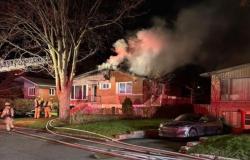The world of the street is hard and sometimes dangerous. Even more when you are a woman. Karima*lived this traumatic experience for 3 years, after a break that she lived very badly. “I had everything! A family, a roof, a job and I lost everything” she regrets. “I did not know where to go, where to find food. Many things can happen on the street when you are a woman, the disease, a rape. The worst is the cold!”
Frédérique Leresche, Giada de Coulon and Anna Colombo, scientific collaborators of HES, HES-SO Haute École de la Dégité Friborg, conducted a study on women who have no housing or are in a location of residential precariousness in the cantons of Vaud and Friborg. Those they met came voluntarily to talk about their experience.
A courageous choice
From this survey they wish to continue, they have already learned some lessons. To be on the street, for part of the women questioned, is the consequence of a courageous choice. That of leaving their homes which have become as dangerous as the street or even more, due to the violence exerted by their companion. “At the start, underlines Giada de Coulon,” there is therefore a real desire to get out of it “. But finding accommodation afterwards, with little or no income and sometimes with dependent children, is a real challenge.
Another observation: women in situations in residential precariousness also often try to safeguard appearances. Hesitate to ask for help. They fear in particular to pass for bad mothers in the eyes of the authorities, with the risk, to lose their offspring. “Now the presence of their children, underline the scientific collaborators, that is what makes them hold!”
Here, we welcome everyone in the same way, without asking questions
As for the responses of the public authorities to these situations, they vary from one canton to another. Some have structures specifically dedicated to women, others not. “Communities take into account the criterion of vulnerability, such as age or state of health, not that of the gender is Frédérique Leresche. In these cases, women are considered a vulnerable category. They thus have priority for emergency accommodation structures”.
At the tile, “we welcome anyone in the same way, without asking questions about the reasons for their situation!” Sylvie Goumaz has been a socio-educational manager in this Friborg association for almost 20 years. Last year, the tile welcomed 92 women without housing, just over 10% of these beneficiaries. A short -term solution but which can then give access to other aid devices.
A 2nd family
The Karima tile is “his 2nd family”. The association allowed him to find a roof and go up the slope. She displays a big smile, but tears are not far when she remembers her years of galley. “I suffered a lot,” she admits.
If Karima’s situation has greatly improved, others are struggling, according to Frédérique Leresche, to find a stable situation, once they have experienced residential precariousness. Difficult indeed, in the long term, to keep the course and find a sufficiently remunerative job “to get rid of the aid of the State, but also of its control!”
*Fictive first name
Radiofr. – Sarah Camporini
--





